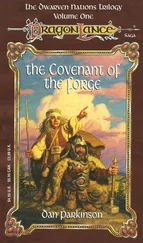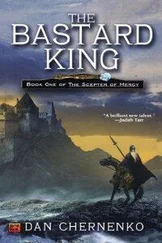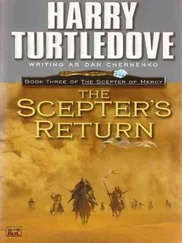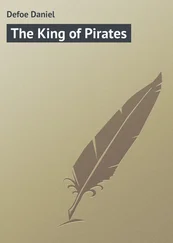Grus guided his horse away from the rest of the army and over beside Lanius. He always joked about what a bad rider he was, but he handled the animal perfectly well. Lanius wished he were as smooth. Grus reviewed the soldiers as they rode and marched past and into the city. The men were hard and scrawny and scraggly-bearded. Some of them limped; others showed fresh scars on faces or forearms.
One of the foot soldiers waved to Grus and called, “We earned our pay this time, didn’t we, Your Majesty?”
“I’d say you did, Buteo,” Grus answered. The soldiers face stretched to hold a pleased smile. He waved again, and kept looking back over his shoulder until the gateway hid him.
“You know him?” Lanius asked. “Was he one of your guards up there?”
“Buteo? No, just a soldier,” Grus said. “He’s brave, but not too smart. He’ll never even make sergeant, not if he lives to be a hundred. But he’s a good man at your back in a scrap.”
“Is he?” Lanius said. Grus nodded. Lanius asked, “How many soldiers do you know by name—and by what they can do, the way you did with him?”
“I never thought about it.” Now Grus did. “I can’t tell you exactly,” he said at last. “But I’ve got some notion of who about every other man is. Something like that. I know more about some—a lot more about some—and not so much about others.”
Lanius believed him. Lanius didn’t see how he could do anything else; Grus radiated conviction. “How do you manage that?” Lanius asked. “I couldn’t begin to, not to save my life.”
“How do you remember all the things you find in the archives? How do you put them together in interesting patterns?” Grus returned, “/couldn’t do that.”
“But knowing people, knowing how they work—that’s more important.” Lanius was sure it was more important, not least because he couldn’t do it himself. “I wish I were better at it.”
“You’ve done all right, seems to me,” Grus said. “If you hadn’t, more people would have taken advantage of you by now.”
“You did,” Lanius said. It was the first thing that came into his mind, and he brought it out with less bitterness than he would have expected.
It still made Grus give him a sharp look. “I wouldn’t be where I am if your mother hadn’t tried to kill me by sorcery,” the other king said. Grus barked laughter. “I wouldn’t be where I am if she’d done it, either.”
“Well, no,” Lanius admitted. Over the years, Grus had done any number of things he didn’t like. Lanius could hardly deny that Grus might have done far worse than he had. It was funny, if you looked at it the right way. He had to like Grus to a certain degree, because he couldn’t dislike him as much as he might have.
“How’s my daughter?” Grus asked—a question any father-in-law might ask of a son-in-law.
“She’s fine,” Lanius said. By and large, it was true. If Sosia sometimes had reason to throw things at him, that was none of Grus’ business. And it wasn’t as though Estrilda didn’t sometimes have reason to throw things at Grus.
“And what about Ortalis?” Grus said. “That was some nasty news you sent me about him and the servant.”
Carefully, Lanius said, “You will know that Ortalis and I don’t always get along as well as we might.” Grus nodded. Lanius went on, “Even I will say it wasn’t altogether Ortalis’ fault. Bubulcus provoked him—provoked him outrageously. Something should have happened to Bubulcus. What did happen, though, shouldn’t have.”
“That’s about how it seemed to me from your letter,” Grus agreed. “At least he didn’t do it for sport. That was what I was afraid of.”
“Oh, yes.” Lanius didn’t try to pretend he misunderstood. “That was what I was afraid of, too. I don’t know what I would have done then.” He gnawed on the inside of his lower lip. He was glad he hadn’t had to find out.
To his relief, Grus let it go there. He said, “And I’ve got a new granddaughter?”
“That’s right.” Lanius felt guarded there, too. If Capella had been a boy, what would that have done to the succession in Grus’ eyes? “Limosa thinks she’s the most wonderful baby in the world. I’d make a couple of exceptions myself.”
King Grus chuckled. “Yes, I can see how you might.” But the older man’s grin slipped. “Limosa.” He said the name of Ortalis’ wife as though it tasted bad. “He finally found somebody who likes the welts he gives her.” Grus made as though to spit in disgust, then—barely— thought better of it.
“She loves him,” Lanius said, which didn’t contradict Grus.
“Does that make it better or worse?” the other king asked.
Lanius thought it over. “I don’t know,” he said at last. “Do you?”
“What I know is… more about Ortalis than I wish I did,” Grus said—not a direct answer to what Lanius had said, but not an evasion, either.
The last soldiers passed into the city of Avornis. They were happy to be home, looking forward to beds in their barracks, to wine, and to women. What went on in the palace meant nothing to them. If they had to go fight, they would. Until then, they’d enjoy themselves.
Not for the first time, Lanius found himself jealous of men who could live for the moment. He sometimes wished he could do the same, without worrying about what would happen next. He laughed at himself. Given the nature he’d been born with, he might as well have wished for the moon while he was at it.
Even though Grus had lived softer in the field than his soldiers had, he was glad to return to the comforts of the palace. He was older than his soldiers, too, and needed to live softer. So he told himself, anyhow.
Estrilda greeted him cautiously, the way she did whenever he came back from campaign. Her look plainly said she wondered what he’d been up to in the land of the Chernagors. This time, he could look her straight in the eye, for he’d been up to very little. For one thing, the Chernagor women hadn’t much appealed to him. For another, he’d reached the age where conquests of that sort were less urgent than they had been in earlier years. That didn’t mean he didn’t enjoy them when they happened—Estrilda evidently hadn’t yet found out about his bastard boy by Alauda, for which he was duly grateful—but he didn’t go after them as energetically as he might have when he was younger.
Still somewhat suspicious, Estrilda said, “You were away for a long time.”
“So I was,” Grus said. “There was a lot to do, and doing it wasn’t easy. If you paid any attention to my dispatches, you’d know that.”
“Not everything you do ends up in your dispatches,” his wife answered. “I’ve seen that.”
He wanted to tell her she was wrong, or at least foolish, but she would know he was lying if he did. All he did do was shrug and say, “Not this time.” If Estrilda felt like quarreling, she would.
She didn’t. “It’s good to have you back,” she said.
“It’s good to be back,” Grus said. “If I had to right now, I do believe I’d kill for a hot bath.”
He soaked in a copper tub for more than an hour, scrubbing away the grime of the campaign and simply luxuriating in the water. Whenever it began to cool down, servants drained some and fetched in more jars of hot water from the kitchens. The king hated to get out. After scrubbing, he leaned his head back in the tub, wondering if he could fall asleep there. Not quite, he discovered, though he did come close.
After the bath, supper. He’d had his fill of seafood up in the Chernagor country. Roast goose stuffed with bread crumbs and dried apples stuck to the ribs. He’d drunk a lot of ale in the north—better that than water, which often brought disease—but sweet wine was better. And, after that, lying down in his own bed might have been best of all.
Читать дальше











